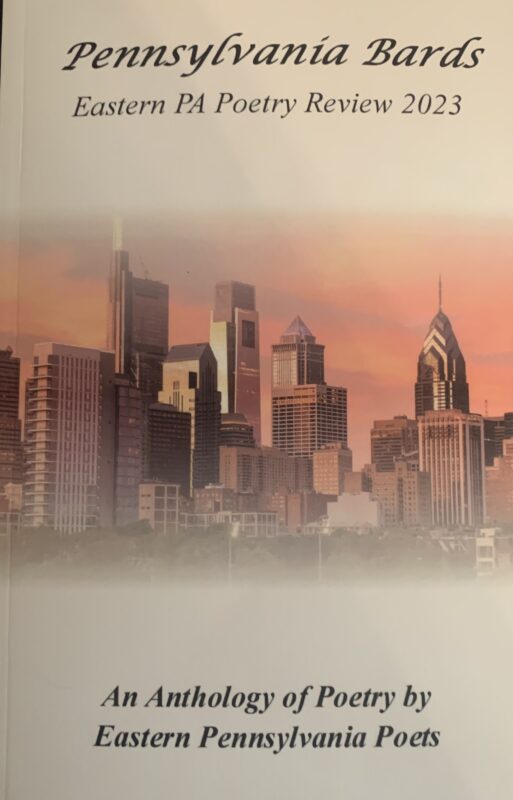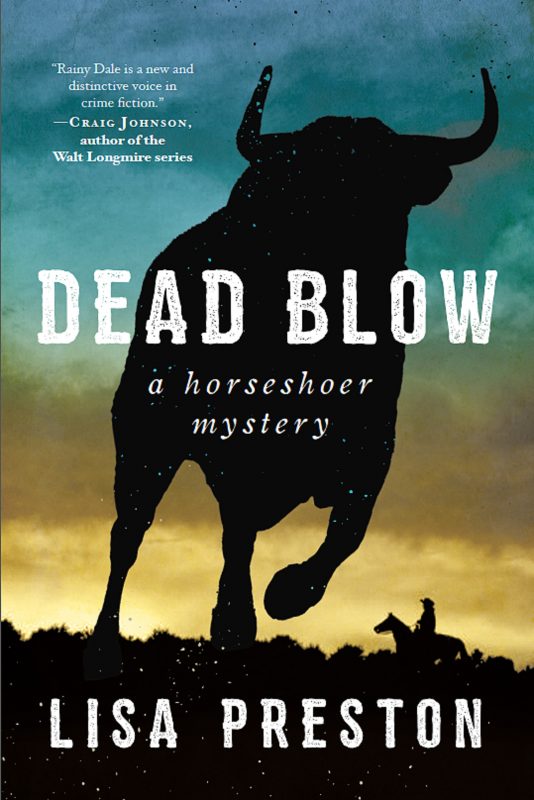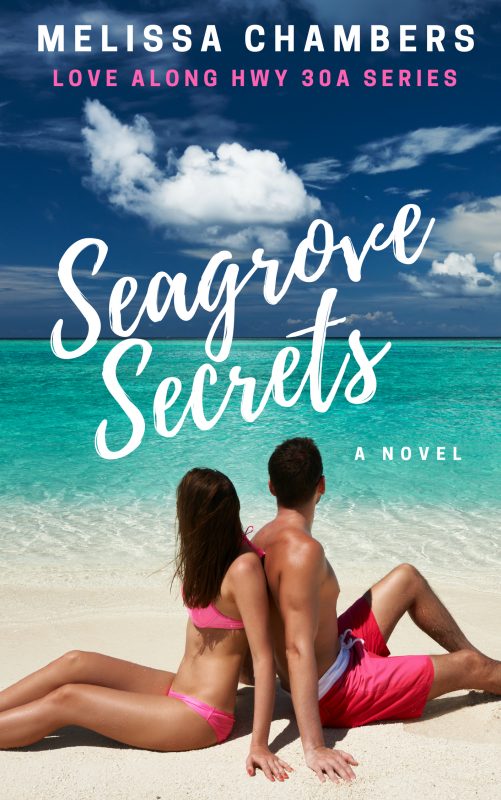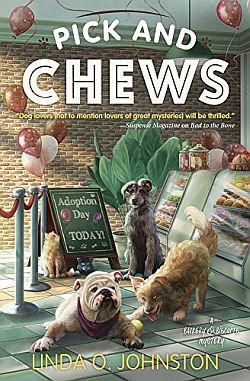Between the Lines with Kara Lennox
March 12, 2011 by Marianne H. Donley in category Archives tagged as Brenda Parrish, Harlequin Super Romance, Kara Lennox Kara Lennox is the bestselling author of more than fifty published novels of romance and romantic suspense. She has been published by Silhouette and Bantam Books as Karen Leabo, and currently writes for the Harlequin American Romance, Silhouette Desire and Signature Select lines as Kara Lennox. Some of her more popular series for the American Romance line are How to Marry a Hardison and Blond Justice.
When lies turn to attempted murder, they must hunt down the truth together…to prove her innocence, protect an honest man and save both their lives.
Q) You have an amazing backlist of books that spans two decades. How do you continue to generate new and fresh ideas?
A) Actually, sometimes I’ll be brainstorming a book, and I’ll say to myself, “This is good. This is really … oh, wait, I already wrote that book.” And certain themes appear over and over in my books. (For instance, my heroines are often struggling with independence vs. commitment–because it’s a struggle I find to be endlessly rich.) But I never seem to run out of ways to spin a story. I like to be inspired by nonfiction stories, I eavesdrop everywhere I go, and everything I read or see has the potential to inspire a story. I keep notebooks full of snippets of dialogue or interesting characters, pictures, ideas for settings, interesting jobs. I don’t organize it, just leave through them sometimes to see what strikes me.
Q) Your work has been primarily geared towards series romance. In your opinion, what advantages does publishing as part of a series have over single title publication?
Series romance offers lots of advantages. It’s a great place for a new author because there is a built-in audience. By writing shorter books, you have the opportunity to publish more titles, which gets and keeps your name out in front of the readers. And although I wouldn’t say royalties are ever “predictable,” the payouts are perhaps a little less erratic and you can make some estimates as to what you’ll earn on a given book. The specific requirements and guidelines for each line give the author a framework to build on, so you don’t have to reinvent the whole wheel each time you write a book. Harlequin does a great job publishing foreign editions (and selling sub rights) so your book lives on in many different editions for years to come. And if you are very prolific, or you have more than one kind of books you like to write, Harlequin can accommodate you.
Q) What is your process for self-editing your manuscript before you submit it?
It varies from book to book. Some books just write cleanly from beginning to end, so I might only do one edit plus one polish. Others are just disastrous from the start and I end up ripping them up, rearranging parts, throwing out whole chapters. I usually make one pass through the rough draft and make notes on what has to be done, then work up a game plan so I can schedule my time and not miss any deadlines. My husband will read the manuscript when I’m done, and I will go through one last time to address his comments.
Q) Are you a planner or a pantser?
I’m definitely a planner. I outline everything ad nauseum. I love structure, I love pulling apart stories to see how they work (or why they don’t work).
Q) What does your writing work day/schedule look like?
I write Monday through Friday, usually in the mornings. I try to get my page count done before lunch and leave the afternoons for other writing-related activities (research, judging contests, online classes, proofreading galleys. It doesn’t always work that way; sometimes it takes me all day to get those pages written. As a deadline approaches I’ll put in more hours, evenings and weekends, but I try to keep a sane work schedule. I’m not one who thrives on deadline pressure.
Q) What advice would you give a new writer who is looking for a career in publication?
Just keep showing up. Selling that fist book involves hitting the right editor with the right material at the right time. So your chances are increased the more you write and the more you send out. Keep trying to get better. Try different things; write in different genres to keep yourself motivated and challenged. Read writing books and take classes. Network and attend conferences. Immerse yourself in it. Just in the past couple of years I’ve had a lot of friends make that first sale after working at it for many years, so don’t give up or think it won’t happen for you. I have a stack of rejections that could choke a horse, collected both before and after I sold my first book. Keep improving your craft and keep sending stuff out.
Brenda Parrish is a member of OCC/RWA and is currently hard at work at her own fiction. She recently finaled in the Jane Austen Made Me Do It Contest! You can follow her on Twitter @itsBren
Don’t forget to SHOW
March 12, 2011 by A Slice of Orange in category Archives
Job Interview Questions for Your Romance Novel Heroine
March 11, 2011 by A Slice of Orange in category Archives tagged as Confessions of a Podcast Goddess, heroine, Interview, job, regency, reporter, romance, romance novels, vampire, Victorian
by Evelyn Q. Darling
Romance Reporter At Large
Is your romance novel heroine qualified for the job?
Did you interview her before you started writing? I don’t mean where she went to school, what her favorite color is, etc. but whether or not she’s qualified for the job as a romance novel heroine.
For example, does she have the skills needed to perform her job: Can she shoot a Glock if you’re writing an FBI agent? Lace up a corset if she’s interviewing for the job as a Victorian lady’s maid?
Or she may be overqualified for the job. For example, she can type faster than you or she has aspirations to leave the romance novel field and get a literary gig.
How long has she been out of work?
Romance novel jobs are hard to get and if it’s been decades since she slipped between the pages of a novel, you might want to reconsider. On the other hand, experience between the sheets is important for every romance heroine.
A typical interview could go like this:
Miss Jones, I’m writing a novel that takes place during the Regency Period. Are you a fan of Jane Austen?
Miss Jones: Jane who? I’m so into Lady Gaga. Love her sunglasses.
Next…
Miss Smith, my next novel is about an FBI agent who’s very physically active to catch the bad guys. Can you drop and do twenty?
Miss Smith: the only thing I dropped was twenty pounds to get this interview.
Let’s try again.
Miss von Rittenhaus, I need a romance novel heroine who sleeps all day and bites all night. Can you list your qualifications to be the vamp queen in my new urban fantasy novel?
Miss von Rittenhaus: Honey, I can snooze and cruise with the best of them. I’ve hit every vamp bar from here to
When can you start?
Miss von Rittenhaus: Tonight. As soon as the sun goes down. (Pause). You haven’t mentioned a benefits package.
What do you mean?
Miss von Rittenhaus: Do I get overtime pay for all this night work? And how about a 401K? I’m not getting any younger and in this economy a girl, I mean vamp, has to look out for herself. What about my e-rights? And health benefits? What if I chip a fang and I have to see a dentist between chapters?
Jeez…Romance heroines…you can’t write with them and you can’t write without them.
This is Evelyn Q. Darling. Till next time when we’ll interview the romance novel hero and see if he’s up for the job.
The Blonde Samurai: “She embraced the way of the warrior. Two swords. Two loves.â€
Jina Bacarr is also the author of The Blonde Geisha ,Cleopatra’s Perfume, Naughty Paris, Tokyo Rendezvous, a Spice Brief, and Spies, Lies & Naked Thighs
Favorite Author Crush Moments by Kitty Bucholtz
March 9, 2011 by A Slice of Orange in category Archives tagged as It's Worth ItAt Routines for Writers, February is always Author Crush Month. It’s our Valentine to writers. Last year Shonna and Stephanie and I talked about how much we learned from all of our Author Crush guests, but I never really wrote down the things that struck me. I just thought about them for a while…until something else used up that space in my brain. (My trip to beautiful Wellington, New Zealand, last week took up all the space for a few days! See my picture at left.) This year we decided we’d really think about it and write it up to share with you. Here is what I learned during Author Crush month this year.
Andrea Nasfell, February 2 – There is no time for indecision. I like that. I think I’m going to spend a little more time brainstorming before I begin writing and then be confident with the decisions I made and keep writing. I’ve spent far too much time the last few years second-guessing myself and my writing. (Being in school again has also emphasized this point for me.)
Janice Hardy, February 4 – Spend time make your first line great! I love first lines myself, and I love working and working on mine until I just love my final choice. It’s a good way to spend your driving time or waiting time.
Larry Brooks, February 7 – His #1 tip is Every Scene Should Have a Succinct Mission. That’s another way to say something I’ve read before, but the way Larry explains it made my entire book rush through my head as I considered whether I’d accomplished this. I know what I want to go change tomorrow! (Remember, Larry will be our guest for the next four Tuesdays in March!)
Janice Cantore, February 9 – What an encouraging story that books you’ve written and had rejected still may get picked up!
Erin Bow, February 11 – No one had me laughing out loud as much as I did when I read Erin’s office is in a pole-dancing studio! That is awesome! Just the thought of it makes my imagination take flight.
Justine Toh, February 16 – For someone who writes as funny as Justine, it cracks me up that she spends so much time avoiding writing. But it also makes me feel better about my own procrastination issues. 🙂
Brad Zockoll, February 18 – I loved his “what if†examples! And I totally get that feeling – When I write, I feel God’s pleasure. It’s a good reminder to get me sitting down writing every day – just remember how good it can feel once you get into it each day.
Mitchell Bonds, February 21 – Take control of your work space. Yes, I need to do that. I share an office with my husband right now, but this weekend I told him that our next home needs to have a space that is only for my writing. Meanwhile, I need to work harder at keeping my desk clear. I don’t know why but it makes me feel more free in my writing. A cluttered surface makes my thoughts feel cluttered. Weird? True.
Kathleen Wright, February 22 – I love the G-shells as expressions of what God’s grace can do in our lives. What a fun example! And what an encouraging story about giving up and finding out God and your writing haven’t given up on you.
Shanna Swendson, February 24 – We’re always reminded to protect our writing time, but Shanna hit my nail on the head when she said we also need to protect it from ourselves! This week I’ve been closer to protecting my writing time (inasmuch as I actually tried). Starting tomorrow, I’m going to succeed in protecting my writing time from ME.
Jackina Stark, February 25 – When Jackina said she didn’t really have a writing routine, but she managed to write 4-5 hours a day when she worked full-time, I was shocked. What else can I let go of and stop spending my time on so that I can free up more time for writing? Or to make it work for me – how can I look at my writing as more appealing than the other things I spend my time on (like watching what I consider to be awesome TV, or trying to respond to every single email I get, or reading all the interesting articles and blogs that don’t actually help me get words down on paper)?
Kathy Tyers, February 28 – I’ve become a fan of written goals, but I love Kathy’s attitude that they can be written in pencil. Awesome. I’m a big fan of flexibility in all areas of life. I think it lends a more relaxed tone to life. And I like relaxed better than stressed out. 🙂
There’s my take on what I learned this month. It’s a lot to think about…until Author Crush Month next year.
Missing OCC
March 6, 2011 by Linda O. Johnston in category Pets, Romance & Lots of Suspense by Linda O. Johnston tagged as Berkley Prime Crime, Linda O. Johnston, Pet Rescuer Mysteriesby Linda O Johnston
I miss OCC.
I haven’t been able to attend a meeting for a while, and still won’t get there till May at the earliest. Sigh.
Why?
Well, in January I had another commitment, and in February I couldn’t get there because I was in the middle of frantically trying to meet a deadline. Plus, I was–and am still–dealing with a lot of time-consuming promotion for my new Pet Rescue Mystery series that debuted on March 1 with BEAGLEMANIA.
I won’t be there this month, either, because of a signing I’ve got lined up. In fact, I have a lot of signings scheduled. I had two last week, one at the grand reopening of the Flintridge Bookstore, and a launch party for BEAGLEMANIA at Mystery Ink in Huntington Beach. My signing on March 12, the date of the next OCC meeting, is at Mysteries to Die For in Thousand Oaks. Coming up are signings on March 19 at Vroman’s in Pasadena, and at Bookstar in Studio City on March 26. (My name is already in lights there! Bookstar is a former theater and keeps its marquee going to publicize events.)

 |
| BEAGLEMANIA, March 2011 Berkley Prime Crime |


Visit Linda at LindaOJohnston.com or http://killerhobbies.blogspot.com/
Affiliate Links
A Slice of Orange is an affiliate with some of the booksellers listed on this website, including Barnes & Nobel, Books A Million, iBooks, Kobo, and Smashwords. This means A Slice of Orange may earn a small advertising fee from sales made through the links used on this website. There are reminders of these affiliate links on the pages for individual books.
Search A Slice of Orange
Find a Column
Archives
Featured Books
DEAD BLOW
Rainy will have to dig deep and use all the tools in her box to both defend herself and the people she's just learning to love.
More info →TRACKING SHADOWS
When danger whispers in the dark, the shadows are the last place to hide…
More info →SEAGROVE SECRETS
With Shayla Harrison's dangerous ex leaving rehab and headed her way, she needs to find a safe house and fast.
More info →PICK AND CHEWS
Carrie Kennersly tries to help her veterinarian boyfriend when he’s under suspicion of murder...Is he a keeper, or should she let him go off-leash for good?
More info →Newsletter
Contributing Authors
Search A Slice of Orange
Find a Column
Archives
Authors in the Bookstore
- A. E. Decker
- A. J. Scudiere
- A.J. Sidransky
- Abby Collette
- Alanna Lucus
- Albert Marrin
- Alice Duncan
- Alina K. Field
- Alison Green Myers
- Andi Lawrencovna
- Andrew C Raiford
- Angela Pryce
- Aviva Vaughn
- Barbara Ankrum
- Bethlehem Writers Group, LLC
- Carol L. Wright
- Celeste Barclay
- Christina Alexandra
- Christopher D. Ochs
- Claire Davon
- Claire Naden
- Courtnee Turner Hoyle
- Courtney Annicchiarico
- D. Lieber
- Daniel V. Meier Jr.
- Debra Dixon
- Debra H. Goldstein
- Debra Holland
- Dee Ann Palmer
- Denise M. Colby
- Diane Benefiel
- Diane Sismour
- Dianna Sinovic
- DT Krippene
- E.B. Dawson
- Emilie Dallaire
- Emily Brightwell
- Emily PW Murphy
- Fae Rowen
- Faith L. Justice
- Frances Amati
- Geralyn Corcillo
- Glynnis Campbell
- Greg Jolley
- H. O. Charles
- Jaclyn Roché
- Jacqueline Diamond
- Janet Lynn and Will Zeilinger
- Jaya Mehta
- Jeannine Atkins
- Jeff Baird
- Jenna Barwin
- Jenne Kern
- Jennifer D. Bokal
- Jennifer Lyon
- Jerome W. McFadden
- Jill Piscitello
- Jina Bacarr
- Jo A. Hiestand
- Jodi Bogert
- Jolina Petersheim
- Jonathan Maberry
- Joy Allyson
- Judy Duarte
- Justin Murphy
- Justine Davis
- Kat Martin
- Kidd Wadsworth
- Kitty Bucholtz
- Kristy Tate
- Larry Deibert
- Larry Hamilton
- Laura Drake
- Laurie Stevens
- Leslie Knowles
- Li-Ying Lundquist
- Linda Carroll-Bradd
- Linda Lappin
- Linda McLaughlin
- Linda O. Johnston
- Lisa Preston
- Lolo Paige
- Loran Holt
- Lynette M. Burrows
- Lyssa Kay Adams
- Madeline Ash
- Margarita Engle
- Marguerite Quantaine
- Marianne H. Donley
- Mary Castillo
- Maureen Klovers
- Megan Haskell
- Melanie Waterbury
- Melisa Rivero
- Melissa Chambers
- Melodie Winawer
- Meriam Wilhelm
- Mikel J. Wilson
- Mindy Neff
- Monica McCabe
- Nancy Brashear
- Neetu Malik
- Nikki Prince
- Once Upon Anthologies
- Paula Gail Benson
- Penny Reid
- Peter J Barbour
- Priscilla Oliveras
- R. H. Kohno
- Rachel Hailey
- Ralph Hieb
- Ramcy Diek
- Ransom Stephens
- Rebecca Forster
- Renae Wrich
- Roxy Matthews
- Ryder Hunte Clancy
- Sally Paradysz
- Sheila Colón-Bagley
- Simone de Muñoz
- Sophie Barnes
- Susan Kaye Quinn
- Susan Lynn Meyer
- Susan Squires
- T. D. Fox
- Tara C. Allred
- Tara Lain
- Tari Lynn Jewett
- Terri Osburn
- Tracy Reed
- Vera Jane Cook
- Vicki Crum
- Writing Something Romantic
Affiliate Links
A Slice of Orange is an affiliate with some of the booksellers listed on this website, including Barnes & Nobel, Books A Million, iBooks, Kobo, and Smashwords. This means A Slice of Orange may earn a small advertising fee from sales made through the links used on this website. There are reminders of these affiliate links on the pages for individual books.









































